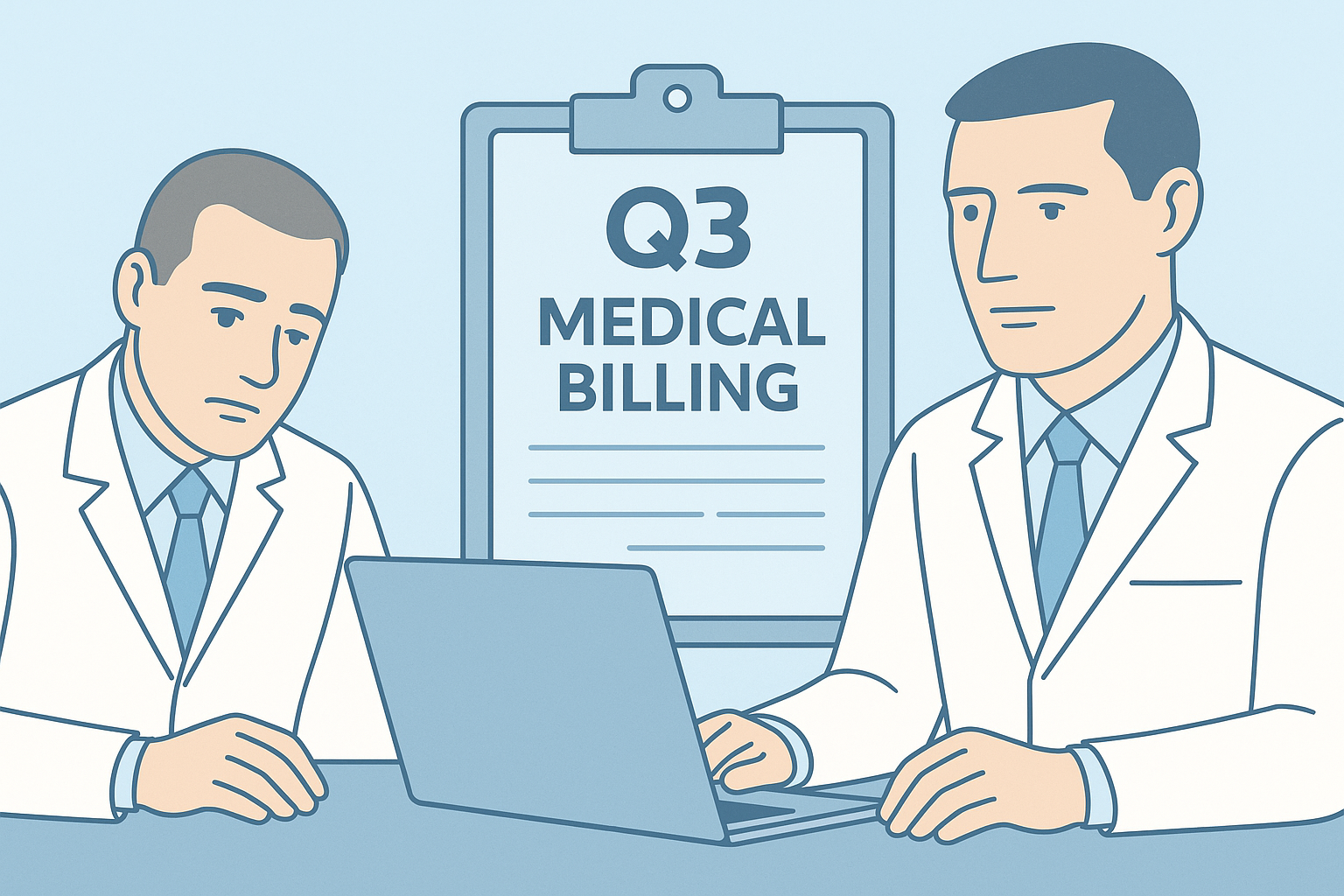QME vs. AME: Understanding Their Roles and Impact on Workers' Compensation Cases
Navigating workers' compensation cases can be complex, especially when medical evaluations come into play. But what exactly is the difference between a Qualified Medical Evaluator (QME) and an Agreed Medical Evaluator (AME), and how do their findings impact your case? Understanding these roles is crucial for ensuring fair outcomes and maximum reimbursement. Let's dive into the specifics and unravel the nuances that could make all the difference in your workers' compensation claims.
How Qualified and Agreed Medical Evaluators Impact Workers' Compensation Disputes
In workers' compensation cases, understanding the roles and differences between a Qualified Medical Evaluator (QME) and an Agreed Medical Evaluator (AME) is essential for navigating the legal and medical complexities involved. These evaluators play a critical role in determining the outcome of disputes related to an injured worker's condition, treatment, and compensation.
The Role of a Qualified Medical Evaluator (QME)
A Qualified Medical Evaluator (QME) is a physician certified by the state’s Division of Workers' Compensation (DWC) to provide independent medical evaluations. The QME’s role is crucial when there is a dispute between the injured worker and the employer (or insurance carrier) regarding the worker’s medical condition, the extent of the injury, or the appropriate treatment plan.
How a QME is Selected
In cases of disagreement, either party can request a QME evaluation. The DWC then provides a list, or "panel," of three QMEs who are qualified to perform the evaluation. Each QME on the panel is expected to act impartially, without favoring either the injured worker or the employer.
The injured worker selects one QME from the panel to perform the evaluation. This process ensures that the QME remains neutral, providing an unbiased assessment that will be used by the Workers' Compensation Appeals Board (WCAB) to resolve the dispute.
What Does the QME Evaluate?
The QME conducts a thorough examination and reviews the medical records related to the injury. Based on this evaluation, the QME prepares a detailed report that addresses several key issues:
- Nature and extent of the injury: Is the injury work-related, and how severe is it?
- Appropriate treatment: What medical care or treatment is necessary?
- Permanent disability rating: If the injury is permanent, what is the extent of the disability?
- Future medical care: Will the worker need ongoing medical care?
The QME’s report is critical in determining the benefits the injured worker is entitled to receive, including medical treatment, temporary disability benefits, and permanent disability benefits.
The Role of an Agreed Medical Evaluator (AME)
An Agreed Medical Evaluator (AME) serves a similar role to a QME but with a key difference: the AME is selected by mutual agreement between the injured worker (or their attorney) and the employer (or their insurance carrier). The AME’s role is often utilized when both parties prefer to bypass the state’s panel process and instead agree on a specific physician to evaluate the medical issues at hand.
When is an AME Used?
An AME is typically used in cases where both parties have already been engaged in a legal dispute and want to streamline the resolution process by agreeing on a single medical evaluator. The use of an AME can simplify the dispute resolution process, as both parties agree in advance to be bound by the AME’s findings.
How Does the AME Process Work?
Once an AME is agreed upon, the process is similar to that of a QME:
- The AME evaluates the worker, reviews medical records, and may conduct additional tests.
- The AME then issues a report that addresses the disputed medical issues, similar to a QME’s report.
- Because the AME was agreed upon by both parties, the findings in the AME’s report are generally accepted by both sides and are given significant weight in legal proceedings.
Common Questions: Does a Defense Advocacy Letter to a QME Make Them an AME?
A question that sometimes arises is whether sending a defense advocacy letter to a QME changes their role to that of an AME. The simple answer is no. The role of a QME remains unchanged regardless of any correspondence from the defense or any other party. The QME is appointed by the state and remains an independent evaluator.
For a medical evaluator to be considered an AME, there must be a formal agreement between both the injured worker and the employer (or insurer) to appoint that specific evaluator as the AME. This agreement is typically documented, and the evaluator is notified that they are serving as an AME, not a QME.
The Impact of QME and AME Findings
The findings of a QME or AME can have a significant impact on the outcome of a workers' compensation case. These findings determine not only the medical treatment the worker will receive but also the financial benefits, including:
- Medical care: Whether the worker continues to receive treatment and what kind.
- Temporary disability: Compensation for lost wages during recovery.
- Permanent disability: Long-term compensation based on the severity of the injury.
Given the importance of these evaluations, it’s crucial for healthcare providers, legal professionals, and injured workers to understand the distinct roles of QMEs and AMEs.
Conclusion: Navigating the Complexities with Confidence
At Medrina Technology Management, we understand that navigating the workers' compensation system can be challenging. Whether you are dealing with QME or AME cases, our team is here to provide expert billing and collections services, ensuring that you receive the compensation you are entitled to.
If you have any questions about QME, AME, or any other aspect of workers' compensation billing, don’t hesitate to contact us. We’re here to help you navigate these complexities with confidence and ensure maximum reimbursement for your practice.
Stay updated with the latest insights and news in medical billing services and workers' compensation billing and collections. Enter your email below to subscribe to our blog
Most Recent Articles





